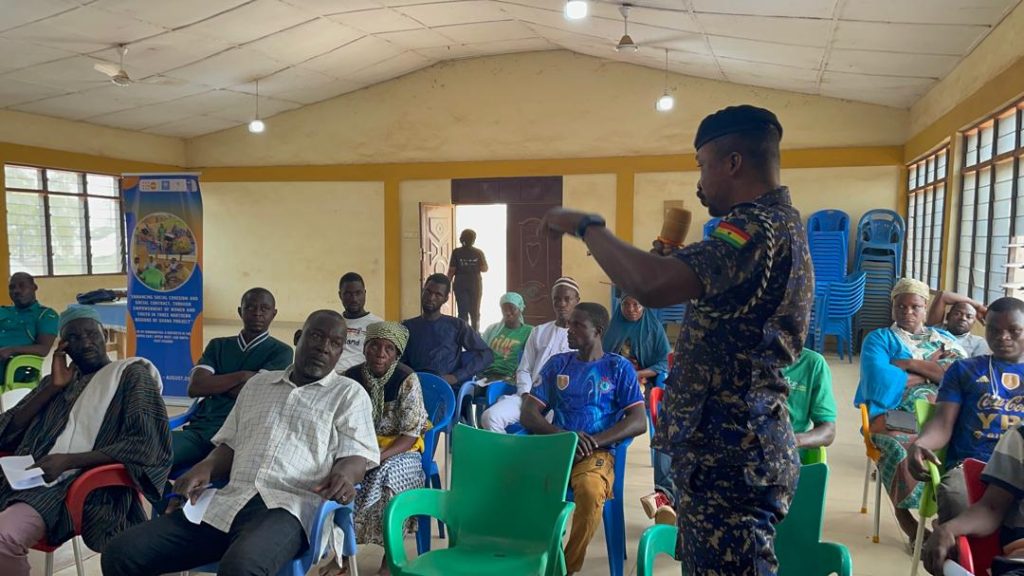By Gilbert Azeem Tiroog
Bongo (U/E), April 04, GNA – The West African Network for Peacebuilding-Ghana (WANEP-Ghana), in collaboration with the National Peace Council, has organised a town hall meeting in Bongo in the Upper East Region, to foster stronger civilian-security relations and promote social cohesion.
The dialogue brought together community leaders, including chiefs, queen mothers, women, youth leaders, assembly members, and a host of other community opinion leaders, along with security officers drawn from the Ghana Police Service and the Ghana Immigration Service.
It followed similar dialogues held in Garu, Bawku West, Sissala West, Chereponi, and Nakpanduri Districts, aimed at enabling civilians and security personnel to discuss security concerns, design strategies to prevent social conflicts, and enhance early warning and response mechanisms.
The initiative, which is part of a comprehensive response to ongoing and potential social conflicts, usually characterised by sporadic violence, formed part of the project dubbed “Enhancing Social Cohesion and Social Contract through Empowerment of Women and Youth in Three Northern Regions of Ghana”.
The project is being implemented in 24 communities across eight districts in Upper East, North East, and Upper West Regions, with funding from the United Nations (UN) Peacebuilding Fund through the United Nations Development Programme (UNDP) and the United Nations Population Fund (UNFPA).
Ms Alice Bokuma, the Gender and Social Inclusion Advisor at WANEP-Ghana, addressing the stakeholders, said the engagement was to help civilians and security agencies identify communication barriers and develop collaborative strategies to prevent violent extremism.
She noted that fostering better information-sharing and cooperation would not only improve relationships and trust between the two but would also enhance knowledge of other social and security vulnerabilities.
This, she said, would help prevent any spillover of violent extremist activities from Ghana’s northern neighbour, Burkina Faso, as well as threats from the northern borders with Togo and Côte d’Ivoire.
“The overarching objective of the project is to empower local governance institutions, actors, and customary governance structures so that they produce inclusive, responsive, and accountable governance, economic development, and quality service delivery as a peace dividend in the northern regions”.
She emphasised that women and the youth were critical and strategic actors in this project, not only because of their vulnerability but also because their understanding of security threats would enable them to guard against being used as perpetrators by violent extremists to disrupt the peace being enjoyed.

Mr David Angaamba, the Principal Programs Manager at the Upper East Regional Peace Council, said the development of every country hinged on peace, as conflict deterred progress and development, and underscored the need for stronger collaboration between civilians and security agencies to tackle the activities of violent extremists.
He emphasised that it was important for stakeholders to collaborate to counter the activities of violent extremism and create an enabling environment where development thrives to improve the well-being of the people.
GNA
FAA/CAA